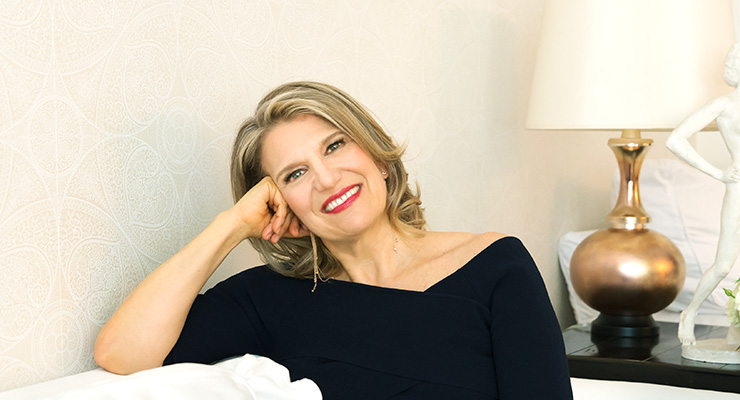
Regena Thomashauer (from Best Self Magazine; photo copyright (c) Bill Miles)
My friend, aware that I had published a women’s success novel in 2019 entitled Trusting All I Want, wanted to get my perspective on Thomashauer’s work, entitled Pussy: A Reclamation. You read that title right.
Before I offer my perspective on the book, let me tell you a bit more about Thomashauer, in case you aren’t familiar with this unique, amazing individual whose the “about the author” section describes her as “a revolution: an icon, teacher, author, mother, and founder and CEO of the School of Womanly Arts, which began in her living room in 1998 and has since grown into a global movement.”
Who is Mama Gena?
As she tells it in her book, which is part memoir, part manifesto, and part guide, Thomashauer grew up in a “squarely middle-class suburb” of Philadelphia in a conservative Jewish family that resembled in many ways a typical family of the 1950s and early 1960s. Her father worked while her mother stayed at home with three children: Thomashauer, an older brother, and a younger brother.
Thomashauer learned from her father, who read aloud from the Bible every Friday night, that words have power. In fact, her favorite book growing up was the dictionary. As she studied the meanings of words and their etymologies, she realized later in life that women have no common language to describe what is “most essentially feminine” about them, and “no way to locate and own” women’s power.
After a troubled childhood that included physical abuse by her older brother, she attended college at Mount Holyoke and obtained a B.A. in Theater Arts. Moving to New York after college, she tried to start an acting career but struggled to get work and ultimately ended up in therapy. After “years on the couch,” she was left with only self-doubt and self-hatred. She eventually quit therapy and began to study on her own. In this formative time, she dove into the work of Carl Jung and Joseph Campbell, along with the history behind ancient goddess traditions and indigenous cultures. She discovered that beginning in prehistoric times and continuing until about 5000 years ago, numerous religions worshipped a female creator. In her words, “The feminine was honored as the portal to life, and everything and everyone was holy.”
Still trying her hand at acting, she received constructive feedback from one of her teachers, who noticed a lack of sensuality in the way she carried herself on stage. She reluctantly agreed to take a course called Basic Sensuality, whose central topic was “how our culture restricts us from experiencing pleasure.” The course and the homework it required of her led to a turning point in her life: the realization that “[s]ensuality was the portal for the Divine Feminine.”
The School of Womanly Arts
Thomashauer’s experiences eventually led her to found the School of Womanly Arts, which has become a multimillion-dollar business she describes as “glorious”—not to mention “fun.” The school, led by “Mama Gena,” coaches women on how to connect with their unique anatomy, the source of their power. (I use the euphemism “unique anatomy” in place of the name of the book. Thomashauer doesn’t mince words, though: the word pussy appears 429 times.) She encourages women to fully embrace (even reclaim) the expletive that forms the title of her book.
Through the courses she teaches, she focuses on personal growth and transformation, including “historic reckoning, sensual awakening, psychological reconfiguration, and spiritual and physical reconnection.” She seeks to form “a sustainable community of thousands of sisters” who can learn from and depend on each other, extending their growth and transformation throughout the rest of their lives. As she always intended, thousands of women have, in fact, taken her courses and graduated from the school.
My Thoughts and Observations on the Book
My female friend put an incredible book into my hands. (Actually, I read it on Kindle, but you get the idea.) After reading Thomashauer’s work, I have a much deeper appreciation of what women bring to the table as a result of their “unique anatomy.” (I still can’t get myself to use the actual word.) The author’s weaving of stories from myths and legends into her direct and fun prose reveals that many of her points are supported through history.
I have always thought of women as being wonderfully complex, and the author confirms the power of that fact. She shows how women can harness that power to improve their lives in remarkable ways, referring to examples from her own experiences and observations. She also emphasizes the power of sisterhood, noting that what she calls the Patriarchal World Culture (PWC) has caused many women to envy and fight each other rather than support one another.
I highly recommend this book to every woman and to any man who wants to better understand the “womanly arts” the author has such a deft way of illustrating and bringing to life. And if you are concerned about carrying around a book having the title it does, get the Kindle version.